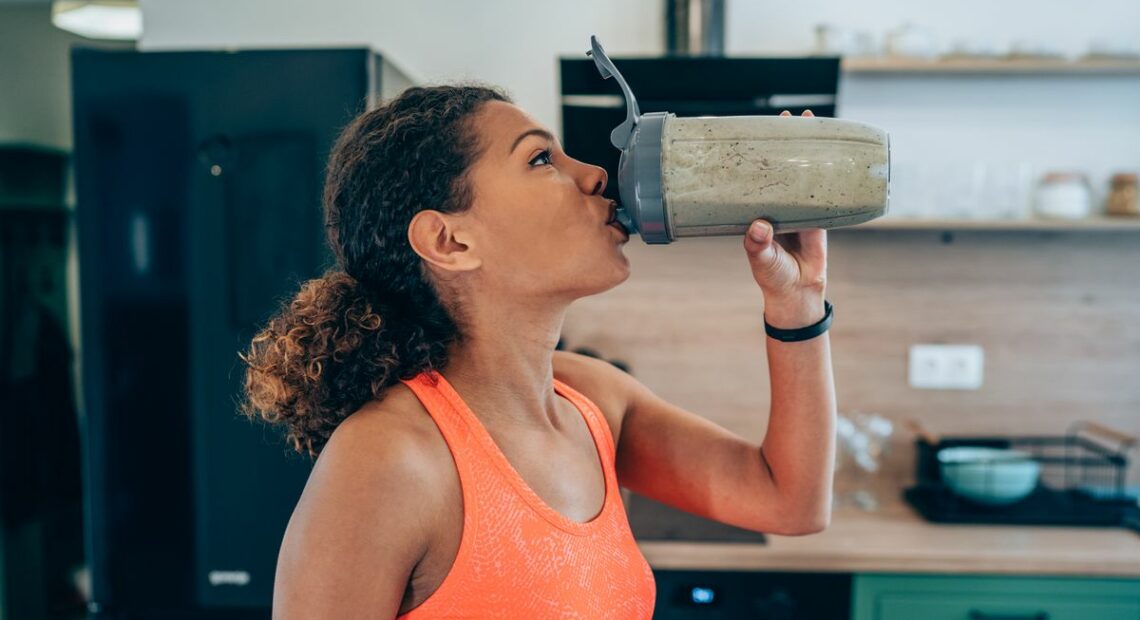Protein Consumption: Weighing the Pros and Cons of Eating vs. Drinking

When it comes to meeting your protein needs, there are numerous options available, including both eating and drinking protein-rich foods and supplements. But which method is better? In this blog post, we will explore the advantages and considerations of both eating and drinking protein to help you make an informed decision about what suits your lifestyle and goals.
Eating Protein: Eating protein-rich foods is a natural and traditional way to meet your protein requirements. Here are some advantages of consuming protein through food:
- Nutrient Variety: Whole food protein sources, such as lean meats, fish, eggs, legumes, and dairy products, offer a wide range of nutrients in addition to protein. These foods often contain essential vitamins, minerals, and healthy fats, which contribute to overall nutrition and well-being.
- Satiety and Digestion: Solid food takes longer to digest than liquid, which can provide a greater feeling of fullness and help control hunger. Chewing solid food also triggers the release of digestive enzymes, aiding in the breakdown and absorption of nutrients.
- Dietary Fiber: Many protein-rich foods are also good sources of dietary fiber. Fiber plays a crucial role in digestive health, regulates blood sugar levels, and promotes satiety. Consuming protein through whole foods allows you to benefit from this additional fiber content.
Drinking Protein: Protein shakes and supplements have gained popularity due to their convenience and ability to deliver a concentrated dose of protein quickly. Here are some advantages of consuming protein through drinks:
- Convenience: Protein shakes and supplements are incredibly convenient, especially for those with busy lifestyles. They require minimal preparation and can be consumed on-the-go, making them suitable for post-workout recovery or as a meal replacement.
- Rapid Absorption: Liquid protein is typically easier to digest and absorb compared to solid food. This can be beneficial for individuals with digestive issues or those needing quick nutrient delivery, such as athletes during the post-workout “anabolic window.”
- Customizable: Protein drinks often come in various flavors and can be mixed with other ingredients like fruits, vegetables, or healthy fats to create personalized and enjoyable shakes. This versatility can make it easier to incorporate protein into your diet and avoid flavor fatigue.
Considerations: While both eating and drinking protein have their advantages, there are some factors to consider:
- Nutrient Profile: Whole food protein sources provide a more diverse range of nutrients, while protein supplements may lack certain vitamins, minerals, and other beneficial compounds present in whole foods.
- Satiety: Liquid calories, including those from protein drinks, may not provide the same level of satiety as whole foods. If weight management or appetite control is a concern, choosing solid protein sources might be more beneficial.
- Cost: Protein supplements can be more expensive per serving compared to whole food protein sources. Consider your budget when deciding between eating or drinking protein.
Ultimately, whether you choose to eat or drink protein depends on your individual preferences, lifestyle, and goals. Whole food protein sources offer a broader nutrient profile and can be more satisfying, while protein shakes and supplements offer convenience and quick absorption. Finding a balance between both approaches may provide the best results for your overall health and well-being. Remember to consult with a healthcare professional or registered dietitian for personalized advice based on your specific needs.
Picture Courtesy: Google/images are subject to copyright













